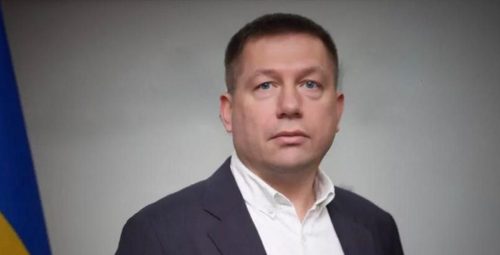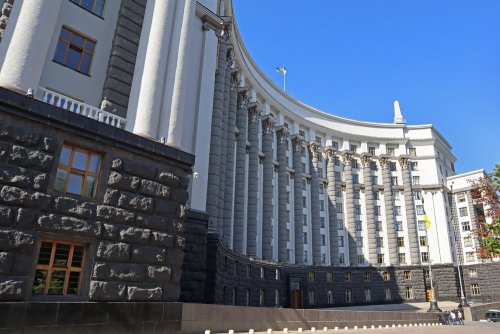State Environmental Inspection of Ukraine made public the project Strategies for reforming state eco-control. It provides for the transition to European Union standards. The Ministry of Environmental Protection and Natural Resources assures that with the implementation of the reform of environmental supervision in Ukraine, quality eco-control will finally work. Representatives of the eco-community have opposite opinions regarding the draft Strategy: some of them evaluated it with skepticism, while others are confident in the correctness of the chosen path.
EcoPolitic analyzed the impact of the reform and why there are doubts about it.
Strategy for reforming state eco-control is a project of reform of environmental supervision developed by DEI. Thanks to him, the Ukrainian eco-control system should be rebuilt according to the European model. The strategy should be implemented in two stages: from 2024 to 2026 and from 2027 to 2028. Every three years, the achievement of the set goals will be evaluated based on the results of the operational plans. The document lists four of them in total.
Prevention of infringement and inevitability of liability
The first of the goals of the Ministry of Environment is to change the priority in the work of eco-inspectors: to prevent the deterioration of the environment, and not to punish for what has already been done.
" The inspector's focus will be constant monitoring and preservation of natural ecosystems, rather than waiting for complaints and statements and a spot visit to the enterprise. Patrolling and emergency response services will be on duty around the clock to protect nature", the ministry emphasizes.
It is planned that the quality of each environmental inspector's work will be measured not by the number of violations he or she records, but by the environmental quality of the area for which he or she is responsible. For example, the more environmentally friendly the area is, the higher the remuneration will be. This approach should encourage inspectors to work as efficiently as possible.
According to the draft law, a violator of environmental legislation will have to repair the damage caused to the environment. If they fail to do so, they will have to pay compensation in proportion to the damage caused.
However, according to the Ministry of Ecology, the effectiveness of recovery from violators is extremely low. Thus, over the past four years, the state has filed claims for damages worth more than UAH 5 billion. Before Russia's full-scale invasion of Ukraine, compensation for environmental damage did not exceed 6% of the damage caused. However, in 2023, this figure increased slightly to 15%.
The Strategy does not specify how this inevitability of liability, and at the same time full payment of compensation, will be achieved.
High institutional capacity and personnel integrity
It is assumed that state environmental control will be carried out according to the example of EU legislation. Therefore, according to the project, complete transparency and publicity in environmental supervision measures is expected. This should be facilitated by the complete digitization of all links of the eco-control system. It should ensure the efficiency of data acquisition, their quality and completeness. Everyone who carries out state environmental supervision should be provided with modern equipment: from the highest officials of the Ministry of Environment to eco-inspectors.
In addition, the latter will undergo "continuous" high-quality training and, according to the ministry's plans, should become professionals.
How much money is needed?
Money for the implementation of the Strategy for the Reform of State Environmental Control is planned to be taken from the state budget of Ukraine. But the required amount is not fixed.
" The amounts of expenditures for the implementation of the Strategy are specified every year, taking into account the possibilities of the state budget, the specification of measures based on the results of their implementation in previous years, and the available international financial and technical assistance", it is stated in the project.
How the eco-community evaluated the Strategy
The President of the Association of Environmental Professionals (PAEW) Lyudmila Tsyganok sharply criticizes the Strategy project. She draws attention to the fact that there is a contradiction in the document, and it itself needs revision.
"There is no need to reinvent the wheel: the regulatory regulation of prosecution is transparent and sufficiently regulated by the norms of administrative, civil, economic and criminal proceedings. In turn, indicators of recovery of damage caused to the environment, relative to calculated and presented amounts, as well as court practice on the specified subject of the dispute, the results of audits of the Accounting Chamber indicate that the main reason for the refusal to satisfy the claims of the State Inspectorate is the lack of evidence of a violation and improper preparation of materials." the expert noted.
In particular, Tsyganok notes that the operational plan for the first three years does not plan to increase the salaries of eco-inspectors, which is a risk for committing corrupt actions.
"The list of measures of the operational plan for the implementation of the Strategy in 2024-2026 does not contain information on increasing the wages of inspectors. How will highly qualified personnel be attracted and corruption overcome?" – the expert asks the question.
Yuliya Gelazhis, head of climate and innovation areas of the UN Global Compact in Ukraine, optimistically assesses the document.
" My view of the draft Strategy is quite positive. This comprehensive approach is a step in the right direction for improving the environment and ensuring sustainable development in Ukraine", — emphasizes the expert.
In her opinion, the Strategy can be implemented even despite the budget deficit of Ukraine and the insufficient number of specialists, because money and the necessary equipment can be attracted from abroad.
"The project envisages active involvement of international assistance. This will allow us not only to strengthen financial and human resources, but also to adopt the best practices of other countries. The changes will be implemented in stages over 2024-2028, taking into account limited resources: a separate operational plan with specific measures must be approved for each period. Such a phased approach will allow us to focus on the most critical issues, optimally allocate available resources and ensure gradual progress," the expert believes.
Is environmental control reform needed now?
The Ministry of Environment recognizes that today state supervision in the field of environmental protection is ineffective, and therefore changes are needed.
"During wartime, violations of environmental legislation and related environmental damage not only did not stop, but in some cases grew in scale. At the same time, it has become much more difficult to detect and stop them in time," the ministry said.
Yulia Gelazhis assures that it is necessary to reform the state environmental supervision today.
"The war does not eliminate, but intensifies the need for effective environmental control. Large-scale destruction poses a threat to the environment, and preventing environmental disasters and coordinating actions to eliminate them through an effective environmental supervision system is one of the security priorities," emphasized Yulia Gelazhys.
Lyudmyla Tsyganok also recognizes the need to reform state environmental supervision already today, but doubts the quality of the prepared draft Strategy.
"The reform of the environmental control system is overdue for a long time. These changes are absolutely necessary, also in the conditions of war, but they must be real changes, supported by real implementation and financing mechanisms. Just paper Strategies and Concepts, many of which are written and presented at the expense of taxpayers, and international partners is a shameful practice that must be stopped," – said the expert .
She draws attention to the insufficient professional education of employees of the state environmental supervision system, which affects the quality of environmental control.
"The level of qualification is extremely low, training requires time and money. Any lawyer easily "puts on the shoulders" of an inexperienced inspector. Currently, we at PAEW are conducting a nationwide study on the institutional capacity to implement all green reforms. It is not enough to write a strategy, it is important to answer the question: who, how and at what expense will it be implemented. So, the conclusions are disappointing. According to the preliminary results of the surveys, a huge number of specialists do not even have a basis of theoretical knowledge," Ludmila Tsyganok claims.
Expert Yuliya Gelazhis emphasizes that even the best project of the environmental supervision system may prove to be ineffective if business and citizens do not understand the importance of nature protection. Therefore, he insists on environmental education of the population of Ukraine.
The Ministry of Environment recognizes that a significant factor in the negative impact on the natural environment is the low level of environmental awareness in the country. Therefore, the Strategy envisages prevention of environmental violations through "increasing environmental awareness" among businesses, citizens and local government officials. That is, the Ministry of Environment plans to carry out environmental education as part of the implementation of the Strategy.
Previous attempts to "reform" SEI
During the Revolution of Dignity, society had a very high demand for the fight against corruption. So in 2014, for the first time, talks about reforming the system of state environmental supervision, namely the State Environmental Inspection, began. Two years later, the then Minister of Ecology and Natural Resources of Ukraine, Ostap Semerak, presented the reform project of the control body. It was called the Concept of Reforming the Environmental Protection Control System and provided for the liquidation of the State Environmental Inspection. The ministry began to prepare relevant legal acts and two years later, in 2018, a draft law "On the State Environmental Protection Service of Ukraine" was submitted to the Verkhovna Rada.
The draft law was sharply criticized by representatives of the eco-community. In particular, there were statements that only the name of the controlling environmental body was being changed. Corruption risks remained, as did the priority of the body's punitive function. Later, the draft law was withdrawn altogether.
Attempt No. 2: draft law No. 3091
In 2020, the draft law No. 3091 "On State Environmental Control" was registered in the Verkhovna Rada. The eco-community also criticized this draft law, because some of its provisions carried corruption risks and increased pressure on business. Representatives of industry and specialized associations also spoke against the document. In July 2021, the Verkhovna Rada adopted the document as a basis in the first reading, despite public warnings. In October of the same year, under pressure from the eco-community, public eco-activists made amendments to the draft law.
As of February 2022, draft law No. 3091 was ready for voting in the second reading, but the Russian invasion of Ukraine prevented the implementation of the plans. Thus, the draft law No. 3091 was put on hold, and the State Inspectorate continued its existence according to the old rules and principles.
In December 2023, the draft law "On State Environmental Control" became a key issue during a meeting between the members of the environmental committee of the Verkhovna Rada and representatives of leading public organizations. It was about the implementation of environmental standards and recommendations of the European Union into the legislation of Ukraine. According to the results of the meeting, it was decided that draft law No. 3091 needs to be finalized. The final version of the document was never presented to the public.
Discussions continue, corruption flourishes
While representatives of the authorities write projects in the system of state environmental supervision, the "nightmare" of business and corruption continues. Thus, in 2020, the European Business Association published the results of a study on the ease of doing business in the Southern region of Ukraine. The largest number of interviewed entrepreneurs complained about the criminal actions of eco-inspectors. Unscrupulous environmental inspection workers were repeatedly arrested red-handed while receiving bribes. Even the former head of the State Inspectorate, Andriy Malyovany, was suspected of embezzlement.
One of the last high-profile cases took place in Sumy Oblast. The head of the local department of the State Environmental Inspection demanded a monthly "payment" of UAH 20,000 from the entrepreneur "for not being prosecuted for possible violations of the legislation in the field of forestry and for not creating artificial obstacles in the form of appropriate inspections during his wood harvesting operations." She was detained by law enforcement officers while receiving a bribe.
But, despite the opposition of the oligarchic lobby and lack of motivation of eco-inspectors, despite the military actions in Ukraine, work on improving eco-surveillance is taking place. Possible sabotage, paper spam, lack of money for reform and specialists can slow down qualitative changes, but are unlikely to stop them completely. The Constitution of Ukraine stipulates the country's course towards membership in the European Union, so it is necessary to adapt Ukrainian legislation to EU standards. European partners help Ukrainian officials in this work, along with representatives of the eco-community. The latter will not stop in their persistence and will obviously "press" the reform of environmental supervision to the required result. The only question is how many years the process will drag on, because in Ukraine there is a war and a shortage of money.





